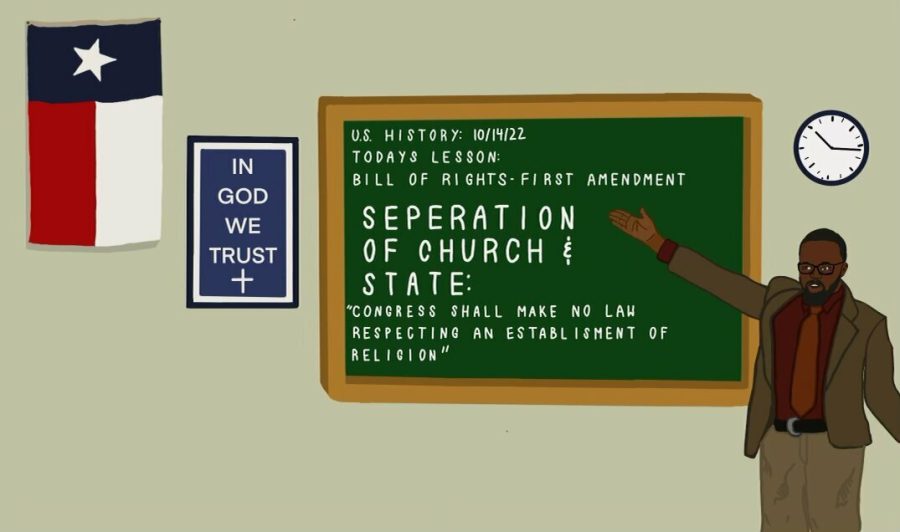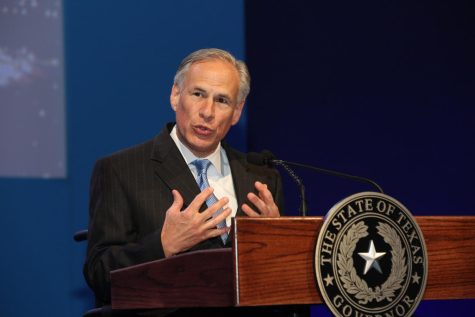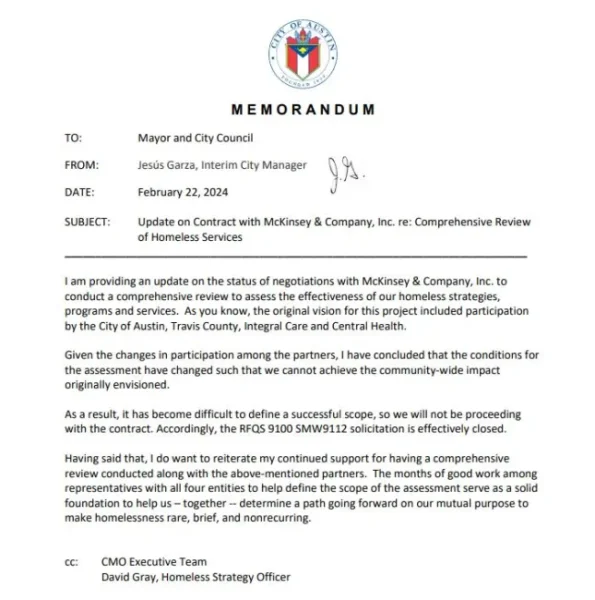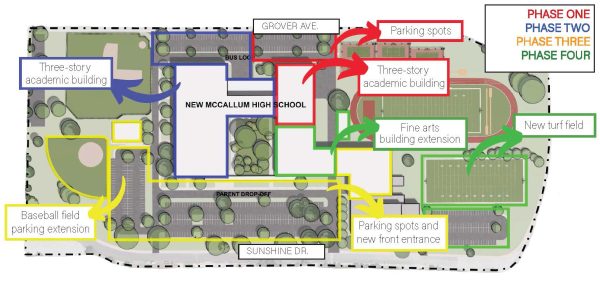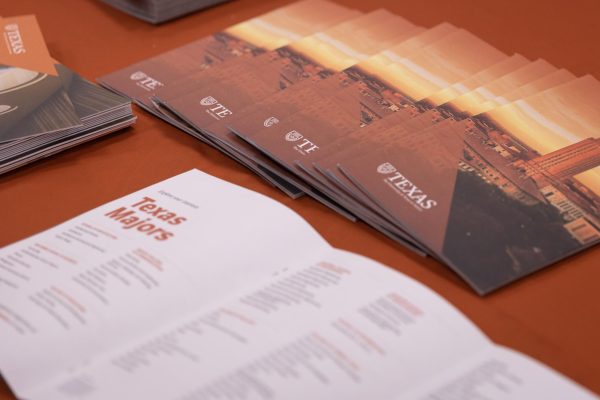Posters or propaganda?
Year-old Texas law now sparks up controversy
Texas Senate Bill 797 requires places of education to display the national motto “In God We Trust” on a poster or in a picture frame in every building on every campus in the state.
October 15, 2022
Texas Senate Bill 797 unanimously passed the all-Republican Senate on April 19, 2021 and went through the House on May 25, 2021, requiring places of education to display the national motto “In God We Trust” on a poster or in a picture frame in every building on every campus in the state. Gov. Greg Abbott signed the bill on June 16 of that same year, and it went into effect on Sept. 1, the same day the controversial SB 8 did. Since McCallum counts as a secondary school and, more broadly, as an educational institution, it is potentially directly affected by this bill.
Disappointment is the only thing that sophomore Grace Valdez felt when first learning of this “In God We Trust” law.
It still feels like things like our religion and other’s religions being forced onto us make us move backwards.
— sophomore Grace Valdez
“I think it’s honestly enforcing something that’s common in more southern laws, especially [in] Texas,” Valdez said, “which is the importance of mainly Christianity and religion in our law, something that should have been very evident and something that should have been prohibited early on through the separation of church and state, something I think our country was founded on.”
Valdez not only thinks that SB 797 is a violation of one of America’s founding principles but also feels that it is confusing and inapplicable for those who identify as atheists or polytheists.
“As much as it feels like in some regards we’re constantly moving forward, especially politically and religiously, by religious freedoms, it still feels like things like our religion and other’s religions being forced onto us make us move backwards,” Valdez said.
Senior and student council member Esme Moreno agrees with Valdez that the Texas government has been walking back certain freedoms for the sake of maintaining Christianity’s prominence.
“I think religion is beautiful, and I think it’s important for some people, but I don’t think it should be put in a place of learning where they’re pushing things, especially in Texas,” Moreno said. “We already know that they are trying to get rid of learning about history and [putting] more focus on God and whatnot. I don’t think it’s necessarily a good place for it.”
I think religion is beautiful, and I think it’s important for some people, but I don’t think it should be put in a place of learning.
— senior Esme Moreno
In world history classes in Texas, teachers are required to teach about the “origins of our morality” by presenting the events of Judeo-Christian myth as fact. One of the teachers required to carry out this curriculum is Robert Bucher. Bucher said he does not understand the point of Bill 797.
“There have been calls for like, to be sending a bunch of signs where it’s written in Arabic, along with English to high schools in Texas and in Florida, if I’m not mistaken. So will Greg Abbott want to take them down if it has to be in Arabic also? If so, then what is the real purpose of this? Why make this rule? You know, is it a reminder to kids to believe in God? Is that really the part of a public institution? Isn’t that a private value, a private choice in a family, an individual? I just don’t understand it. It’s confusing to me.”
Floridian activist Chaz Stevens took note of how SB 797 does not specify what language the mandated signs have to be in and offered ones in Arabic to Carroll ISD in Southlake. Similarly, Southlake resident Sravan Krishna brought “In God We Trust” signs in Arabic and signs with a rainbow color gradient (commonly associated with the LGBTQIA+ community) to a CISD school board meeting last week. The district rejected the signs, claiming that they already had enough, thanks to the efforts of more self-serious groups.
“Why is more God not good?” Krishna said.
Why make this rule? You know, is it a reminder to kids to believe in God? Is that really the part of a public institution?
— history teacher Robert Bucher
Neither of the two McCallum students who offered their reaction into this issue had heard of the bill prior to their interview, so the enforcement of this law may not reach McCallum. Even assistant principal Larry Featherstone was unaware of any “In God We Trust” signs on campus. Elsewhere in the state, however, various Christian organizations, such as The Yellow Rose of Texas Republican Women and Patriot Mobile have taken matters into their own hands by donating signs with the necessary information to schools in the Cypress-Fairbanks and previously mentioned Carroll independent school districts.



